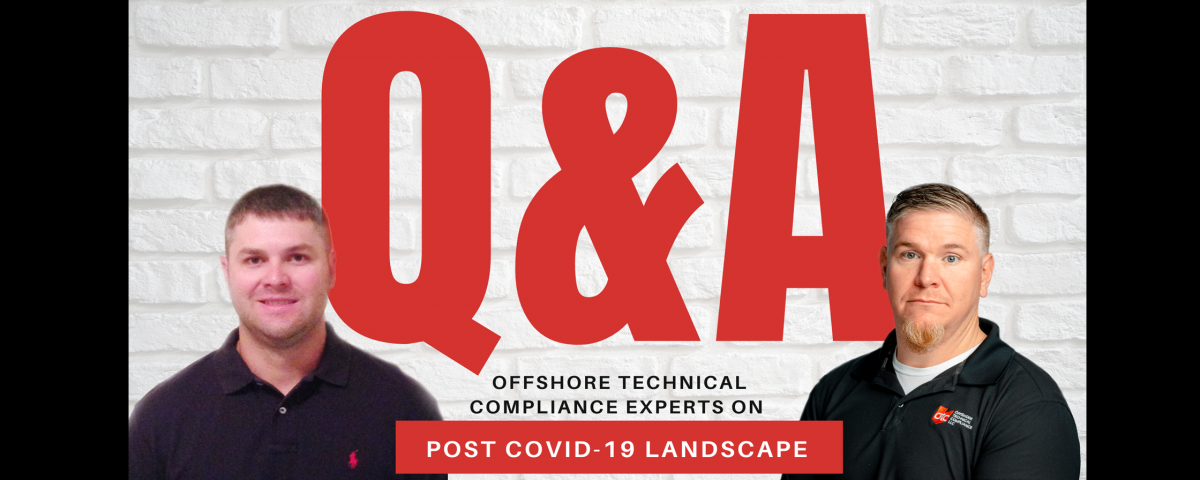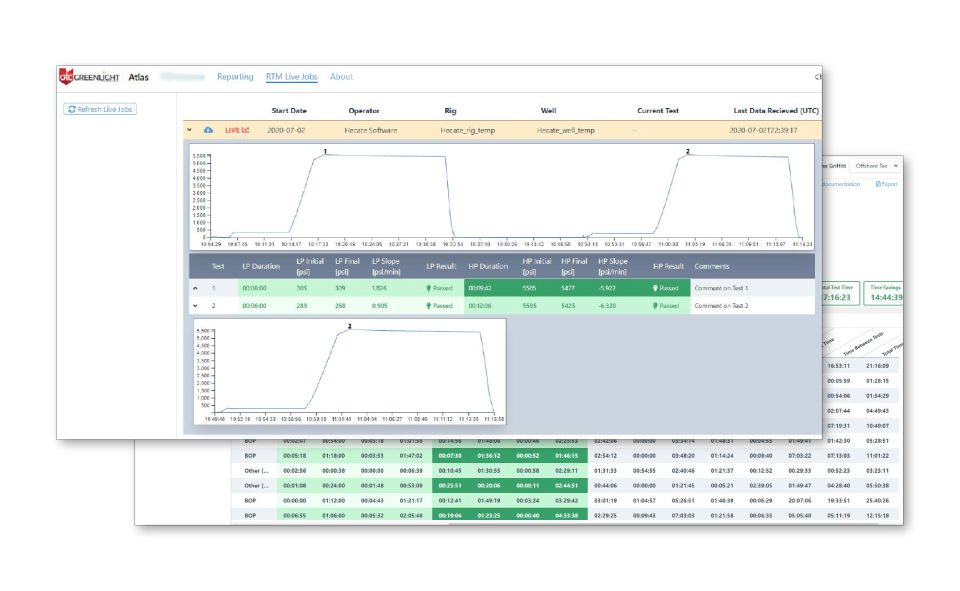- Have any questions?
- +985-727-7400
OTC Post-COVID: What is the New Normal?

At the Dawn of a New Decade …
March 3, 2020
Offshore Technical Compliance Opens OTC Mexico Division in Mexico City
September 1, 2020
|
In this month’s Compliance Corner, OTC’s Evan Smith, Senior Greenlight Pressure Testing & Compliance Specialist, and Vince Ulsh, Well Control Accounts Manager, answer some common questions about how OTC has adapted to the new post-COVID-19 landscape. How have your clients been affected by the COVID-19 pandemic in terms of business?E.S.: Our clients have been strongly affected by the COVID-19 business slump, which has impacted an industry that was finally on an improving trend after years of enduring a low and fragile market. Now our clients are fighting through a historic time of low prices and an uncertain future of our industry and their livelihoods. V.U.: The slowdown in day-to-day activities has negatively affected the oilfield in general. The “new normal” has become a process of completing health questionnaires prior to traveling offshore and severely limiting the amount of personnel required to travel for work. Most of our clients are looking for ways to minimize man power on oil and gas rigs to reduce potential exposure to the virus. How has the wider landscape of compliance changed?E.S.: Safety and compliance offshore has always required certain health and occupational health assessments. But the level of testing of physical health of all employees of all companies has increased significantly. During these times, every person headed offshore is questioned and tested for any ailments that could be attributed to the virus. They are questioned about potential exposure from others also. V.U.: Overall, the traditional compliance aspect has not changed. The direction may have taken a new course, but compliance can, and will, save lives and protect the environment. Health and safety have certainly ramped up with screening for COVID-19 and in some cases our clients are requiring short quarantines before departure regardless of testing or questioning. Do you think these changes are temporary or permanent?E.S.: I believe that some of these changes will be permanent in some capacity, but not maybe to the extremes that the COVID-19 pandemic has demanded. V.U.: I believe that in the grand scheme of things, the changes are temporary. But I do think there are things that will stay. Social distancing, hand washing, the use of masks, and some level of screening before going offshore. I think some of these things will be permanent. Do you think the climate of hyper-vigilance in terms of health will transfer to wider industry workplace safety?E.S.: The hyper-vigilance of all employee safety has no choice but to transfer to wider industry workplace safety. The strong emphasis on health will permeate all jobs that are performed in our industry, thereby leading to wider workplace safety. V.U.: I think that what we have learned from the past is that rules, regulations, and standard processes must be in place to maintain safety. But the tools are only as useful as the person using them. What advice are you giving to your clients at this time?E.S.: We are here to help in any way to provide a guiding service with the best professionals in the industry. I have been asked about how we can help with a more remote approach. We can address many issues that may be presented from the safety of indirect interaction. I assure all of our clients that we are available 24 hours a day, seven days a week for any questions that may arise. V.U.: We are trying to emphasize that we understand that the COVID-19 pandemic has greatly affected the way business is having to be conducted at this time. I have let our clients know that we are still here and we are willing to work in the safest manner possible to ensure their success. In terms of business processes and productivity, what positive/constructive lessons have you learnt from the events of the past few months?E.S.: These past few months have been trying times, but the great minds in our industry are resilient. We have found ways to keep providing and overcoming anything that stands in our way. Furthermore, the COVID-19 pandemic has made me become more vigilant about my health and the health of those around me. V.U.: I have learned that we as a whole can get the job done regardless of the circumstances (ie. staying at home, intermittent internet and so on). Aside from the need to adapt to the work at home order, it has really made us communicate a lot better since we can’t see each other every day. How is OTC keeping its staff and clients safe as the global health crisis continues?E.S.: OTC has gone to great lengths to keep their employees safe by implementing screening and keeping human contact at a minimum while still being able to provide industry-leading services and solutions for our clients. V.U.: OTC has mandated a new set of rules that we must follow. Hand sanitizer is located in the office and the common areas and questionnaires must be filled out prior to returning to work. OTC’s management team has made me feel very comfortable with the return to work. What message would you like your clients and customers to be reassured with at this time?E.S.: I would like to reassure our clients that OTC is here for them in these unprecedented times. We have highly trained professionals available to address all your compliance needs. All service will be provided with the upmost attention to health and safety. Our industry and way of life will prevail! V.U.: I would like all of our customers and clients to know that we understand the situation they are in because we are in this with them. We have adjusted pricing to reflect the industry demand and will continue to provide the best service for our clients at the best rates, with the best technicians. OTC maintains offices in Covington, LA, Houston, TX and recently began operations in Mexico City, Mexico. OTC is ISO 9001:2015 certified and can be found on the web at www.otcompliance.com |

